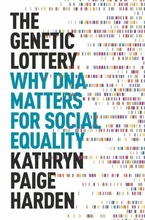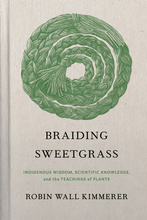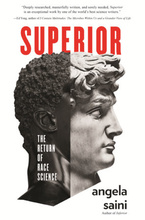Main navigation
Add department-specific info here
The Department of Biology recognizes that diversity in students, faculty, and staff along multiple dimensions is beneficial to both student success and to the research enterprise itself.
When individuals are grouped in diverse combinations and in an environment that supports collaboration, innovation and creativity increase and problem-solving skills are enhanced. Achieving excellence through diversity alone is, however, not sufficient. In parallel, equitable and inclusive practices must be established and embraced to ensure that the environment fosters the success of diverse groups.
The Department of Biology faculty, staff, postdocs, graduate, and undergraduate students commit to:
- Be proactive in recognizing and standing up against discrimination based on, but not limited to: race, ethnicity, color, sex, gender, gender identity and expression, socioeconomic status, language, culture, national origin, age, family/caregiver status, (dis)ability, citizenship status, political ideology, or religious, non-religious, or spiritual beliefs.
- Recognize that we all carry biases and be cognizant of how those biases influence our actions and behaviors (e.g., microaggressions).
- Train ourselves in taking action against the many forms of unconscious, implicit, and explicit bias directed at underrepresented groups.
- Educate ourselves on the systemic barriers that underrepresented groups face; work together to dismantle those barriers and actively redress historical inequities present today.
- Foster inclusion inside and outside of the classroom, such that all voices can be both shared and heard.
- Encourage and support those who report concerns
- Acknowledge that the University of Iowa stands on the ancestral land and territories of several Native American tribes (see land acknowledgement statement provided by the University of Iowa Native American Council) and recognize that this land was obtained through exploitation and injustice.
- Educate ourselves about the exploitation of Black, indigenous, and people of color (BIPOC) by researchers in STEM fields (i.e. Tuskegee experiment, HeLa cells, profiteering from indigenous medicines) and incorporate these histories into our curricula.
- Oppose the misuse of biology to attempt to justify discrimination and prejudice. Actively oppose the unscientific idea of "biological races" as applied to humans. There are no genetic boundaries separating human populations.
- Reject misuses of science and appeals to pseudoscience that wrongfully attempt to justify the dehumanization of LGBTQIA+ people
DEI resources
The UI Libraries has a compilation of anti-racism resources for students, faculty and staff to supplement DEI related trainings offered by the UI Office of Diversity, Equity and Inclusion.
Implicit association tests (IATs) are useful tools to start conversations about implicit bias that we all carry and about the impacts our biases can have on others. These can also be useful tools for self-reflection and motivational toward personal growth. Each test takes ~10 minutes.
Implicit bias training and resources at UI: A collection of videos, additional IATs, and in-person and online training sessions for faculty, staff, and students.
The Building University of Iowa Leadership for Diversity (BUILD) Program: Iowa's program for gaining skills toward creating inclusive environments. Faculty and staff can sign up to take individual classes, or complete the core competency course plus five electives to recieve the BUILD certificate. Review a list of upcoming courses.
- BUILD-certified members of the Department of Biology include Marlys Boote, Andrew Forbes, Anna Gaw, Maurine Neiman, and Diane Slusarski. Feel free to contact any of them for questions you have about the program.
An 8-week mentor training program is available each summer for faculty, postdocs, and graduate students. This course follows the "Entering Mentoring" curriculum developed by the Wisconsin Program for Scientific Teaching (sponsored by NIH, NSF, and HHMI), and is led by NIH NRMN certified master facilitators. For more information, contact Biology faculty member Dr. Lori Adams.
- Several faculty, postdocs, and graduate students in Biology have taken this mentoring workshop, including Department of Biology Professor, Diane Slusarski, and Director of Graduate Studies, Bryan Phillips. Registration is typically announced via departmental email during the spring semester.
Members of the Department of Biology DEI advisory committee curate this list of resources. All faculty, staff, graduate, and undergraduate students are invited and encouraged to share additional resources. Send yours to biology@uiowa.edu.
Diversify your curriculum
Project Biodiversify offers many resources you can use to increase representation and inclusion in your courses. They maintain a repository of studies useful in teaching commonly-taught biology topics, with a focus on promoting the work of scientists representative of human diversity. They provide slides you can adapt for your own courses, and you can also submit curricular materials of your own.
University of Iowa Acknowledgment of Land and Sovereignty information
PowerPoint slides or PDF for faculty and instructors to share with students.
Inclusive teaching
This article describes an online, evidence-based teaching guide that serves as a resource for faculty, instructors, and TAs to develop inclusive teaching practices. The guide also includes an instructor checklist with actionable steps to guide instructors as they develop inclusive teaching environments.
Race Matters (Asai, 2020)
This article, published in Cell, shows that while Persons Excluded because of Ethnicity or Race (PEERs) are now more likely than in 1992 to enter college with an interest in STEM, there has been essentially no improvement in the proportion of PEERs that stay in STEM or go on to receive PhDs. Asai suggests that putting inclusiveness at the center of the culture of science is key to making change, puts the onus on faculty to make such cultural changes, and offers recommendations for Biology departments, including a specific focus on reforming how introductory science courses are taught. A recording of Dr. Asai's engaging talk for the Society for the Advancement of Biology Education Research (SABER) (8/27/20) summarizes his findings and recommendations, and is available via Dropbox.
Cultivate Classroom Equity
This article provides 21 strategies for promoting student engagement and equity in the classroom.
The University of Iowa Department of Chemistry Diversity, Equity, and Inclusion website curates a similar and complementary list of teaching resources.
The authors of this opinion piece identify evidence-based ways to overcome challenges faced by underrepresented students in research laboratories including experiences of bias, feelings of isolation, and a lack of mentorship:
Ahmad et al. (2019) Evidence-Based Strategies for Improving Diversity and Inclusion in Undergraduate Research Labs Front. Psychol., 18 June 2019 https://doi.org/10.3389/fpsyg.2019.01305
Articles for diversity, equity, and inclusion in biology
Responses to 10 common criticisms of anti-racism action in STEMM (Gosztyla et al. 2021) - This article presents lucid arguments in response to obstructionist complaints against DEI work (e.g., "We should stick to the science", "It's reverse discrimination", and "we should only hire based on merit")
Language Matters: Considering Microaggressions in Science | CBE—Life Sciences Education - Recommended by Lori Adams to raise awareness about what microaggressions are and how to respond to them in a research group setting. This article can be used to initiate conversations about everyday language in the research group environment that may unintentionally exclude some members. This article can also be used in conjunction with taking an implicit bias test to initiate conversations about unconscious bias that can take place in the research group environment that may unintentionally exclude some members. As stated by the authors “We all make mistakes and may lack awareness of the way our words may affect those around us. We also all have unconscious biases that influence how we interact with one another.”
Recreating Wakanda by promoting Black excellence in ecology and evolution (Schell et al. 2020) - this article provides feasible suggestions for how Biology departments can implement anti-racist policies through specific structural changes in trainint and mentoring, evaluation, and recognition of excellence.
Hidden Figures in Ecology and Evolution (Miriti et al. 2020) - This article focuses on the problems and challenges posed by retention (vs recruitment) with respect to STEM diversity initiatives, with a particular focus on recognizing and amplifying the accomplishments and contributions of black female scholars. The goal is to support and empower early career researchers who are women of color.
White Academia: Do Better - Recommended as a starting place for anyone - but especially white people - looking to do the work to fight against racism in academic settings. Makes several brief points that could inspire discussion among your lab group or peers. Also includes many recommendations for additional readings/videos/podcasts.
Too many senior white academics still resist recognizing racism (Bumpus, 2020) - Reflections and recommendations from a Black biologist and department chair, with particular focus on failures of white colleagues in recognizing and confronting racism in academia.
Inclusive Teaching - This article describes an online, evidence-based teaching guide that serves as a resource for faculty, instructors, and T.A.s to develop inclusive teaching practices. The guide also includes an instructor checklist with actionable steps to guide instructors as they develop inclusive teaching environments.
Equity, Diversity and Inclusion: Racial inequity in grant funding from the US National Institutes of Health - Analysis of responses of the NIH to systemic racism in reserch funding, alongside recommendations for improvement.
Articles from other fields
Articles from other fields about improving climate in science departments and professional societies. These articles do not deal directly with biology, but the problems they address–and solutions they recommend–are universal.
Hostile climates are barriers to diversifying the geosciences (Marín-Spiotta et al. 2020) discusses hostile departmental climates, the importance of understanding intersectionality, and problems arising from power dynamics in academia.
Building an Inclusive AAS - The Critical Role of Diversity and Inclusion Training for AAS Council and Astronomy Leadership (Brinkworth 2016) reviews some of the science that shows why diversity in the academy improves innovation and creativity, refutes the idea that science is a meritocracy, and presents why belief in the meritocracy negatively affects non-white, non-male students. The article also strongly advocates for diversity and inclusion training.
Members of the Department of Biology DEI advisory committee curate this list of articles. All faculty, staff, graduate, and undergraduate students are invited and encouraged to share additional resources. Send yours to biology@uiowa.edu.
All persons affiliated with the Department of Biology are invited to participate in our DEI Book Club. Every 1 to 2 months, we choose a new book, and then we meet weekly to discuss chapters. This is an informal group and anyone can join at anytime (email alaine-hippee@uiowa.edu or andrew-forbes@uiowa.edu to sign up). Announcements of new books are shared with the department via email and via the Monthly DEI newsletter.
Upcoming book
Check back for the next read.
Books we've read
Jan-Feb 2022: The Genetic Lottery: Why DNA Matters for Social Equality by Kathryn Paige Harden

Sept.-Oct. 2021: Braiding Sweetgrass by Robin Wall Kimmerer

Feb 2020: How to be an Antiracist by Ibram X. Kendi

Jan 2020: Inferior: How Science Got Women Wrong - and the New Research That's Rewriting the Story

Nov-Dec 2020: Superior: The Return of Race Science by Angela Saini

Diversity, equity, and inclusion in the College of Liberal Arts and Sciences
The principles of diversity, equity, and inclusion (DEI) are fundamental to the mission of the College of Liberal Arts and Sciences at the University of Iowa, as we conduct our work in the context of the whole of humanity.
- In our teaching, we draw on, explore, and question every facet of human experience and understanding.
- In our scholarship, scientific inquiry, and artistry, we create new knowledge and insight, reflecting and shaping the cultures and societies in which human lives unfold.
- In our service to Iowans, we collaborate with communities to solve critical problems arising from inequity.
DEI values are inseparable from those of the liberal arts tradition. To fully realize our college’s critical mission of advancing human understanding within that tradition, we must actualize these values in every aspect of our decision-making and every area of our academic community.